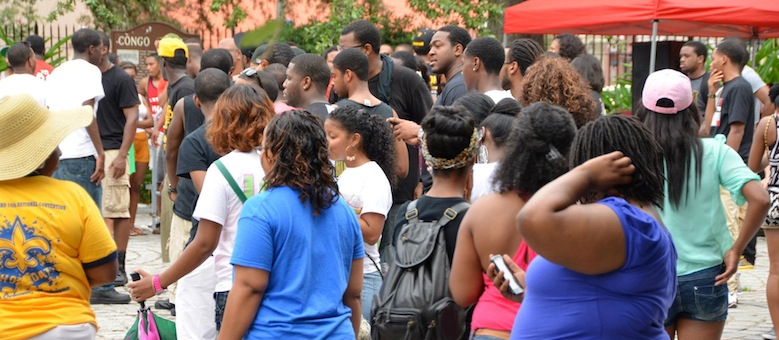
Around the nation, New Orleans is finally receiving the recognition it deserves as a Mecca for innovation. The National Journal wrote in April that the city’s transformation into a magnet for business startups amounted to pulling off “an economic miracle.” Time asserted in March 2012 that “a new culture of entrepreneurship is taking root … in the Crescent City.” The Daily Beast recently ranked us the No. 2 most “aspirational” city in the nation, declaring us a “magnet of opportunity.”
All of this is especially remarkable given that only a few years ago, pundits were pondering whether New Orleans was even worth rebuilding?
I have long seen the writing on the wall: Private sector job growth in New Orleans will not keep pace with the city’s rebounding population … unless we do something about it.
It’s easy to wave the congratulatory flag, to declare “mission accomplished” in the city’s half-century battle against social and economic decline. It would be easy to fall back into passivity and
laissez les bon temps rouler.But history tells us — from the Great Depression that followed the Roaring Twenties to the meltdown after the 1990s tech bubble that good times don’t roll forever, and that we can’t leave the economic future of our city — or our nation — to fate.
Sam Tabachnik’s recent opinion piece on this site spoke eloquently of the frustration engendered by a culture that is producing dozens of applicants for every job opening. Unlike many of my colleagues, I am not concerned that the influx of talented out-of-towners will upset the city’s delicate political balance. (Frankly, I believe the political landscape could use a few new faces). Nor do I fear that “carpetbaggers” are taking our jobs. Most of my colleagues would be unwilling to work for the paltry AmeriCorps stipend that Tabachnik aspires to, and far too many of our residents lack the education and skills to fill professional jobs, a disheartening fact that forces companies to seek out-of-town applicants for many positions anyway.
As chairman of the Greater New Orleans Junior Chamber of Commerce, and as an entrepreneur, I have long seen the writing on the wall: Private sector job growth in New Orleans will not keep pace with the city’s rebounding population.
Unless we do something about it.
When I hear my under-40 peers decry a less-than-inviting job market, I’m reminded of Booker T. Washington’s prescient words: “What we should do in all our schools is to turn out fewer job seekers and more job-makers. Anyone can seek a job, but it requires a person of rare ability to create a job.”
The city’s small businesses are what’s leading our economic revival. Now we need to create an environment in which New Orleanians from every walk of life can invest in and grow businesses. That means maintaining low taxes; it also means providing start-up incentives.
Want to save New Orleans?
Start a business. Invest in a start-up. Support organizations like the Urban League of Greater New Orleans, Junior Chamber of Commerce or Junior Achievement. They’re helping disinherited and at-risk New Orleanians acquire the skills to open and grow businesses, provide for their families, and contribute in a positive way to rebuilding the city.
Starting, growing and investing in small businesses in New Orleans helps our economy and improves the lives of our residents.
I’m reminded of the inspiring story of Marian Pierre, who started Crescent Guardian Inc., a security company, with a $50 loan and borrowed office space in 1993. Today, Crescent Guardian is a multi-million dollar company that employs over 1,500 New Orleans residents.
Or Damien Brown, who convinced reluctant investors in 2011 to give him a $500 round of start-up funding and turned it into New Orleans Greek Picnic, the second largest festival for African-American professionals in the city, second only to Essence Festival. The last New Orleans Greek Picnic was attended by more than 2000 individuals from across the nation and had an economic impact on the city of more than $500,000.
Brown’s and Pierre’s stories are not uncommon, and their investments in the city and its residents are paying dividends.
Certainly, we need teachers who are highly qualified and motivated. And our nonprofits need well-trained professionals to do the important philanthropic work so many of our residents depend on.
Our city is well-served by the diversity of ideas and experiences brought our way by young people, even if they’re just passing through. But our continuing economic recovery is going to take more than scratching at the door of prospective employers and asking for a pittance.
We’ve got to turn our “do-gooder” culture into a “job creator” culture.
Samuel J. Cook III is chairman of the board of the Greater New Orleans Junior Chamber of Commerce.

